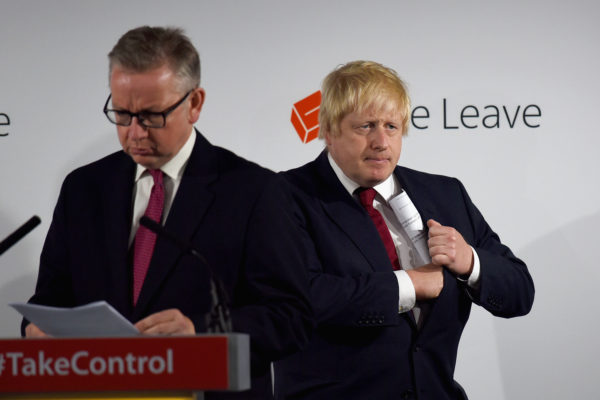Despite government promises to copy existing EU law, Brexit will likely mean a decline in environmental standards

The government has promised that “the whole body of existing EU environmental law” will be preserved in the Repeal Bill. Then we’ll have taken back control – free to tailor environmental protection to the precise needs of the UK.
What’s not to like? Well, as it happens, quite a lot.
If you wanted to deflate the bombast of ‘taking back control’ then the law protecting our environment would be a good place to start.
Weather systems don’t show their passports at border control. If Ruritania, next door, has laxer controls on air pollution your children, too, get respiratory diseases. There are some problems that just can’t be tackled at a national level.
This insight lies right at the heart of the European project – and it’s called the principle of subsidiarity.
What it means is that we devolve legislation to the lowest level of government consistent with that legislation achieving its objectives. If member states can do it properly on their own, Brussels won’t get involved.
It’s a particularly important principle in a globalised world where corporations are larger – and sometimes more powerful – than governments. I see this in my own field – tax – where multinationals pick and choose, spreading their activities over a range of states, always choosing where the tax burden is the lightest.
The net result is that we lose. It is only when nation states club together that we acquire the ability to extract from capital a fair share of tax.
The health of our children and our elderly parents stands to suffer most
So in these spheres where only supranational action can work, spheres like tax and the environment, what does taking back control actually mean?
At best, it means a chimera of legal control, that your parliament acquires the ability to shake its fist, impotently, at problems beyond its sway. But at worst? At worst it’s far more damaging than that.
Theresa May has promised that this Repeal Bill will transmute all of the environmental protections sourced in EU law into their equivalents sourced in UK law. She has promised that the Repeal Bill will deliver no weakening in environmental protection. But afterwards?
The white paper goes on to talk of afterwards. Afterwards the government will have the opportunity to deliver “outcome driven” changes. But what are those outcomes? The white paper does not say.
If the UK finds that Brexit has made it a less attractive place to do business, if it is worse for business to be outside than inside the largest economic marketplace in the world, what will we do? We are bound to promote ourselves on the basis of such ‘advantages’ as we have.
One of those advantages may well be our ability to offer businesses within that marketplace the chance to avoid the costs of particular environmental protections. Base yourself here, will be the pitch, and dodge that cost.
This threat of regulatory arbitrage, to lower regulation to “regain competitiveness”, let us remember, is a pitch that Philip Hammond has already explicitly delivered.
Just stop and think about what that means. It is not an offer to responsible business. Lower legal standards have no appeal to businesses that recognise the moral imperative to protect our planet.
It is a pitch only to the burn-it-down school of capitalism: only its adherents will move to where lower standards are tolerated.
This, it hardly needs saying, is bad for all of us. The EU’s ability to maintain environmental standards will be undermined. The profound existential threats posed by pollution and climate change will be heightened.
But it is especially bad for the UK.
The UK that will be turned into a safehouse for the polluters of Europe. It is our landscape that will bear the heaviest cost. It is the health of our children, our elderly parents, that stands to suffer the most.
By weakening or abandoning cooperation with our neighbours, by swapping the reality of actual control for the illusion of legal control, by creating incentives to weaken safeguards, Brexit poses a serious risk to the environment here and abroad.
Jolyon Maugham QC is a barrister at Devereux Chambers and the director of the Good Law Project. He tweets as @JolyonMaugham





‘Brexit will turn UK into a safehouse for Europe’s polluters’
Jolyon Maugham